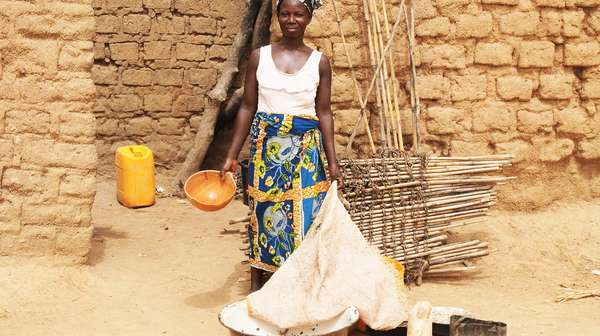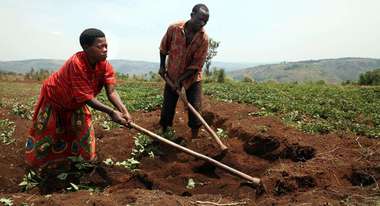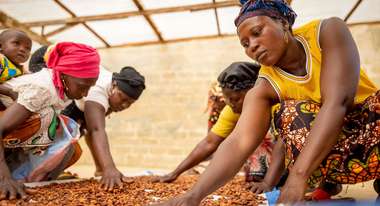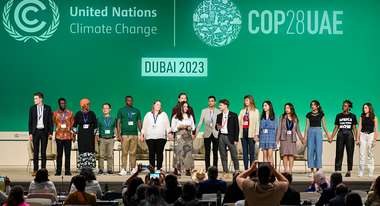Climate change: A threat to the environment and people
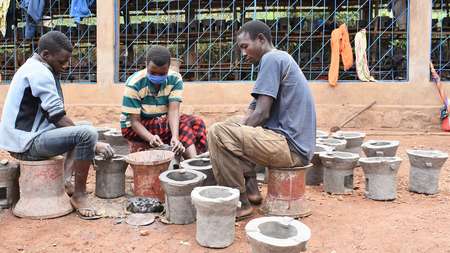
A job with a protection factor - for nature
Young people in particular face major problems in Burundi. There is high unemployment, climate change and a rapidly growing population mean that more and more farming families have less and less fertile land at their disposal. In the northern province of Ngozi, many can barely feed themselves adequately. A Welthungerhilfe project is therefore specifically training young people - for a secure income and the ability to protect their homeland through sustainable management.
Firewood - as precious as gold
For Patricie Mukunzi, her new stove, which she built herself, is a blessing. "I only need half as much fuel as I used to," says the young mother. "Sometimes I can cook even longer with the same amount." In a village like Marangara in northern Burundi, firewood is as precious as gold is to others. The small farming families cook and heat with wood, they use it to build their houses, stables and storerooms, and they produce charcoal for their own use or for sale. Other means of income are rare in the impoverished region.
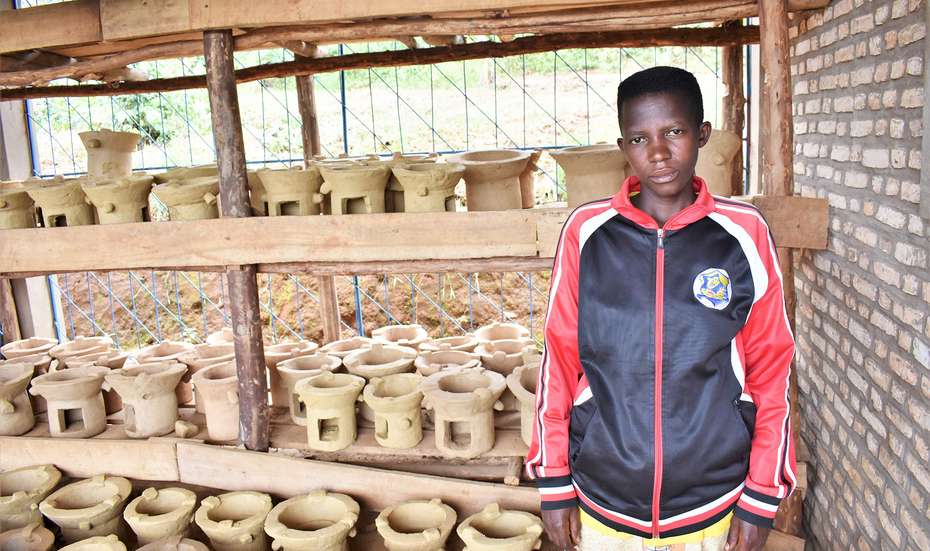
Almost all families here live from the yield of their meager fields or the simple charring of wood. However, the forest and arable land are increasingly shrinking as the population grows rapidly and climate change destroys entire swaths of land through heavy rain or extreme drought. So people are cutting down the remaining trees to plant new fields or gather fuel. The result is a permanent downward spiral: more erosion, depleted soils, less agricultural productivity, greater damage from climate-related extreme weather, and growing hunger.
New trees for a better future
"We want to rebuild what was destroyed in our homeland," says Patricie Mukunzi. She is one of 1,200 young people in Ngozi Province who were jobless and destitute and are being given a chance in the Welthungerhilfe training project. Together, they want to take active control of their own and their children's future. "We plant new trees and make energy-saving stoves," Patricie says, explaining the project. Progress is already evident in Marangara: Within six months, Patricie Mukunzi and her colleagues have reforested more than 92 hectares of the Gikomero hill.
2,500 families now cook with energy-efficient clay stoves, and more and more people are using improved charcoal-making techniques to produce charcoal. Many schools in the project area have also received new cooking stoves, more massive than the handy mud stoves for home use. A total of 24,000 stoves are expected to be built by the end of the year.
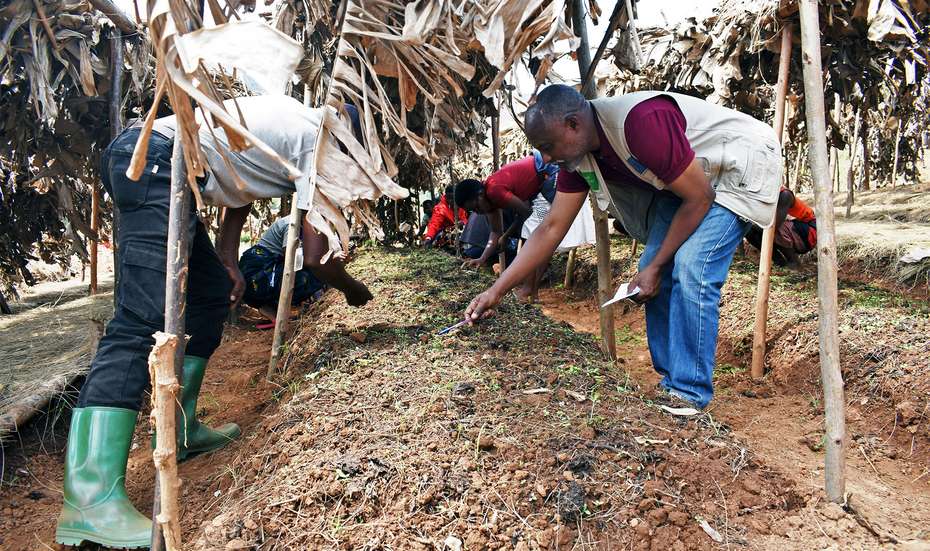
Better prospects through vocational training
"Until now, I didn't see any prospects for me and my son in our village," says Emmanuella Uwizerimana. Now she has renewed hope: "The project gives me the opportunity to train in agriculture. From the money I earn, I would like to set up a small business and keep goats. With that, I can give my son a better future. "Welthungerhilfe's environmental and economic project takes action on several levels. In addition to the sustainable use of natural resources, the young people acquire important knowledge for future-oriented professions, such as adapted agriculture, animal husbandry, raising timber and fruit trees, stove construction or environmentally conscious forest use. The production of charcoal with improved charring techniques is also an education with a future in Burundi.
More than half of the population in Burundi lives below the poverty line. Small farmers are the most frequently affected.
All measures are accompanied by information campaigns about the advantages of the new herd or the effects of the overuse of natural resources. In addition, Emmanuella Uwizerimana and Patricie Mukunzi organize themselves with their comrades-in-arms into savings and credit groups. "This gives me the opportunity to get the start-up capital for my goat farm," says Emmanuella Uwizerimana. Until she has saved enough money, she will continue to clear hills and potter clay ovens so that more families can help protect their homes.
The text was written by Amédée Nkurunziza and appeared in our magazine (German).





